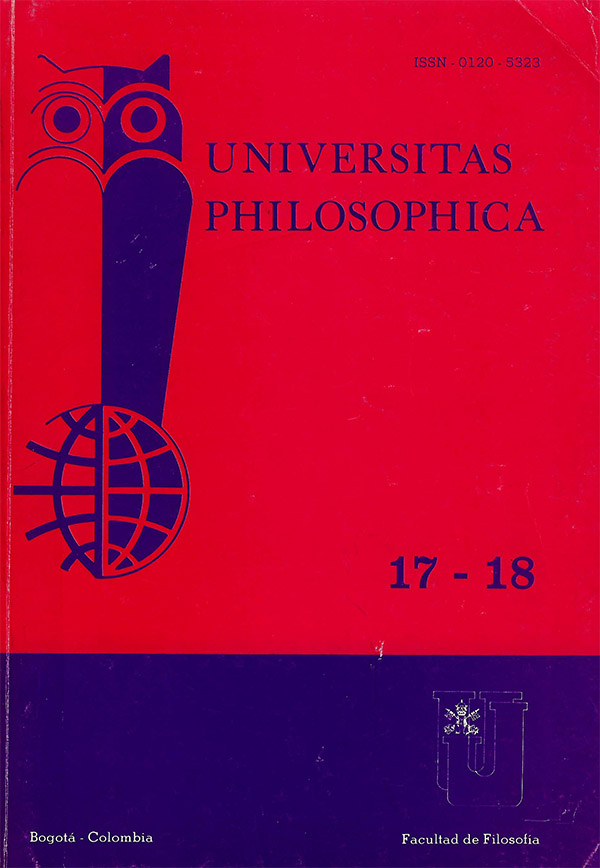Abstract
¿Es posible ser uno mismo -tanto desde el punto de vista personal como colectivo (nacional o cultural)-, en un mundo humano abstracto, planetarizado sobre la base de una universalización de la economía? ¿Habrá que rechazar la inserción en la economía-mundo para poder mantener la especificidad latinoamericana? Estas son las inquietudes aque nos abre el presente artículo. Después de fundamentar la tesis de que la pregunta por el hombre debe hoy surgir desde la aceptación de la problematicidad e historicidad constitutivas del ser humano y no de un objetivo naturalista de corte aristotélico, el autor se pregunta por el camino adecuado para llegar a la verdad concreta del hombre. La teoría husserliana de la intersubjetividad sirve de brújula en esta búsqueda. El hombre es el ser que se autoconstituye creativamente compartiendo el mundo con los otros sujetos. La universalidad humana es alcanzable únicamente desde la circunstanciada certeza de cada pueblo, de cada hombre. El autor trata de indicar cómo la crisis actual latinoamericana exige y posibilita un discurso filosófico, hecho desde la experiencia de América Latina, que alcance dimensiones universales. La solución que América Latina ha de dar al problema de su inserción -sin perder lapropia identidad- en un mundo de economía y de organización planetaria, tiene que encerrar una solución humana de validez universal. Para ello ha de superar muchas tentaciones que ofrecen pseudosoluciones y propuestas abstractas.This journal is registered under a Creative Commons Attribution 4.0 International Public License. Thus, this work may be reproduced, distributed, and publicly shared in digital format, as long as the names of the authors and Pontificia Universidad Javeriana are acknowledged. Others are allowed to quote, adapt, transform, auto-archive, republish, and create based on this material, for any purpose (even commercial ones), provided the authorship is duly acknowledged, a link to the original work is provided, and it is specified if changes have been made. Pontificia Universidad Javeriana does not hold the rights of published works and the authors are solely responsible for the contents of their works; they keep the moral, intellectual, privacy, and publicity rights.
Approving the intervention of the work (review, copy-editing, translation, layout) and the following outreach, are granted through an use license and not through an assignment of rights. This means the journal and Pontificia Universidad Javeriana cannot be held responsible for any ethical malpractice by the authors. As a consequence of the protection granted by the use license, the journal is not required to publish recantations or modify information already published, unless the errata stems from the editorial management process. Publishing contents in this journal does not generate royalties for contributors.


